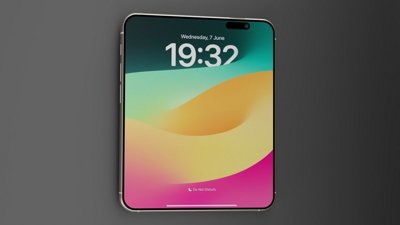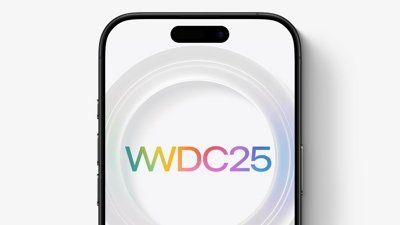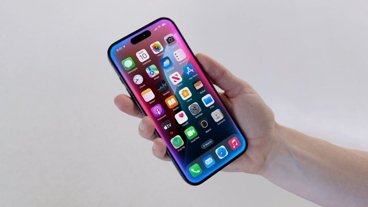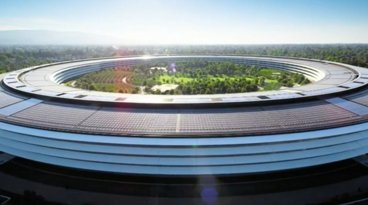Apple's Services arm is set to go under a number of changes that could apply pressure to the company, Macquarie suggests in its pre-Apple results report, with concern over App Store commission revenue from in-app purchases not able to be offset by the iPhone maker's newest subscriptions for the moment.
The economics of the App Store is an ongoing concern for analysts at Macquarie in an investor note seen by AppleInsider, which believes the longstanding 30% commission Apple takes from app sales and in-app purchases thought to be at risk in a similar way to those of the Google Play Store. The policy is already under attack in an attempted class-action lawsuit and by other critics, but the analysts suggest Apple's store policies may aid it where Google's version fails.
By way of example, dating app Tinder "which is one of, if not the largest payer of app store commissions on the planet" according to the firm, has altered its Android app so that payments go through a different process than Google Play for billing, which Macquarie worries is a technique that other tech firms may follow in pushing back against the fee.
However, the same has not been applied to the iOS version of the app, due to difference in developer policies that must be agreed to be included in the App Store. This does not stop pressure from being applied to Apple, as if "Google makes a developer-friendly move first when it comes to commission rates, developers will be highly incentivized to work more closely with Google than Apple."
Sticking with Services, the possibility of an "Apple Prime" subscription bundling together multiple offerings into one payment is also raised. It is highlighted that the newest Services products, including Apple TV+, Apple Music, Apple Arcade, and Apple News+ "do not have the impact to outweigh the movements of the established drivers of the App Store, Licensing, and Apple Care" at the gross profit level.
A "potentially more interesting" proposition to Macquarie is if Apple combines its latest services into a bundle that "critically includes hardware in the equivalent of an Apple Prime subscription." Macquarie envisions a bundle that features Apple TV+, Apple Music, Apple Arcade, Apple News+, App Store credits, and a new iPhone or iPad "every 24-30 months."
This move is billed as a way to "lock in consumers to the Apple ecosystem."
China continues to be a potential problem for Apple in terms of hardware, with the majority of the Greater China revenue declines of 27% in the first quarter and 22% in the second quarter likely to have been from hardware sales, tempered by positive Services revenue.
Hardware will also be on the mind of investors for the latter half of 2019, but more towards the 2020 iPhone than the 2019 refresh. Macquarie suggests 2019 will be a "lacklustre year for iPhone," being an incremental update, but investors will be focusing on the more substantial 5G-equipped model that could arrive in 2020.
"We think any of the more near-term hardware trends may be outweighed by the focus on the 2020 iPhone, similar to the anticipation leading up to the iPhone 10 in 2017," the firm writes.
For the financial results due on July 30, Macquarie believes Apple's revenue will be at $54.217 billion, higher than the Wall Street consensus of $53.348 billion, and an earnings per share of $2.08 versus the Street's $2.09. Apple's forecast from the Q2 results was for revenue between $52.5 billion and $54.5 billion, putting Macquarie near the top end of the range.
Macquarie reiterates its "Neutral" rating and a $190 price target.
 Malcolm Owen
Malcolm Owen

-m.jpg)






 Christine McKee
Christine McKee
 Amber Neely
Amber Neely
 Wesley Hilliard
Wesley Hilliard

 William Gallagher
William Gallagher












17 Comments
This is what happens when you have ill informed "analysts" under pressure to produce reports to keep their jobs.
if "Google makes a developer-friendly move first when it comes to commission rates, developers will be highly incentivized to work more closely with Google than Apple."
LOL. Developers aren't going to ignore the over 1.5 BILLION iOS devices, and much more lucrative iOS market because Google shaves off some portion of their commission. Developers have already made over $150 BILLION dollars from the Apple App Store. LOL.
If Google "eats its young" and reduces its commission, yes developers will take that extra percentage, but it will have zero impact on whether they are incentivized to sell their apps to Apple's BILLION plus wealthier than average customers.
I wonder how many developers have gone out and priced what it would cost to maintain their own server to download their app, the cost of securing it so it doesn’t get hacked and the app replaced by a malicious clone, the cost to process payments for the app, and the cost to maintain correct accounting of app sales.
30% might seem high to some, but they haven’t really come forward publicly to give an alternative or explain why a smaller percentage would be beneficial to both parties.
Sorry, I don’t believe Spotify’s crocodile tears when it comes to a developer making a point about paying fees to Apple. IMHO, they are mad because they are getting squeezed by the RIAA and feel Apple is taking up whatever profits they would get for the price they are charging.
Any year now. Just you wait. The downfall is inevitable, it has been written!
"
Somehow analysts fail to fully grasp more than one-step ahead. If developers did a rush on the store, then Apple would simply change the conditions to keep revenue coming in.
At the moment we have an "App Store" that metaphorically treats apps like individual products on a shelf. Apple manages the store and the people who make the products manage their side of their businesses. This is a pretty normal arrangement that begins to approximate consignment.
Following through on the scenario proposed by the analyst to the logical extreme: All apps are now free with developers earning revenue via externally managed subscriptions.
So now the "free" apps are no longer metaphorical products on a shelf - instead it's more like the developers are no-cost leasing space inside of the Apple building and running their own business on the side to keep the margin out of Apple's hands. So what does Apple do now? Well they change how they derive revenue from the developers of course, for example, they could metaphorically charge rent. Like all rented store fronts, the landlord can require that the various stores report their earnings, from which Apple could charge a sliding scale of fees based on their revenue. Those making money from the store pay something. They could base it just on number of downloads. They could base it from notifications delivered. They could even jack up the annuals. There are so many ways any company can fairly apportion costs.
The point is that there is no such thing as a free ride and the App Store is not free to run. Apple can make moves to obtain revenue from developers who make money through their platform one way or another. But also keep in mind, there is nothing stopping a competitor from coming along and upending the business model of delinquent developers - heck maybe even Apple could commission a free tindr clone and destroy Tindr's business model in the process.